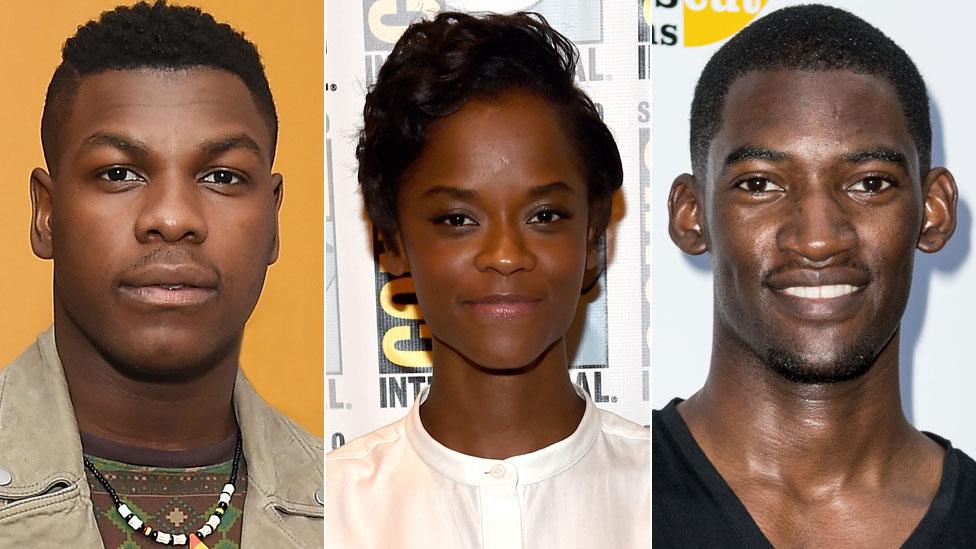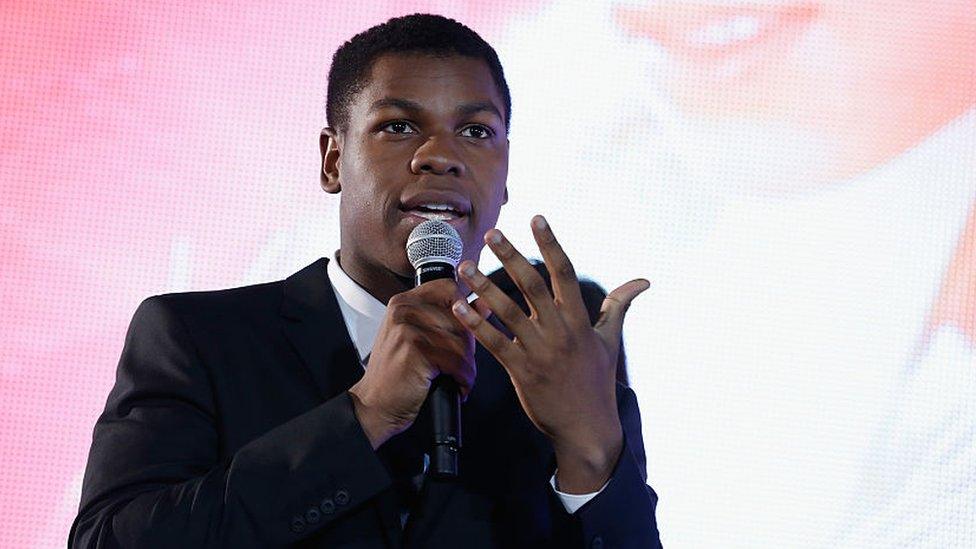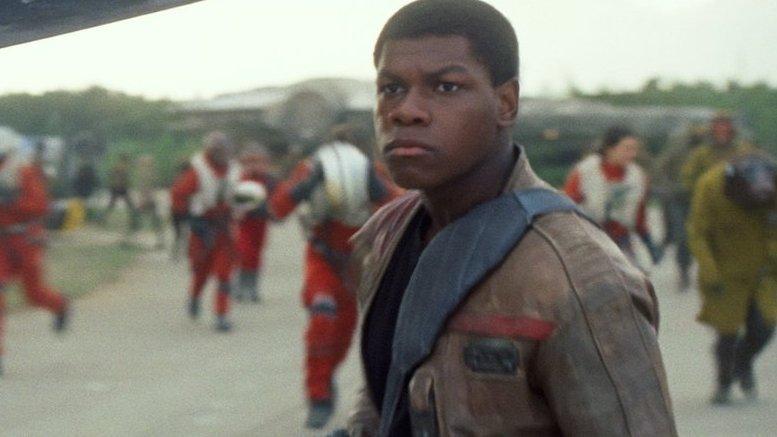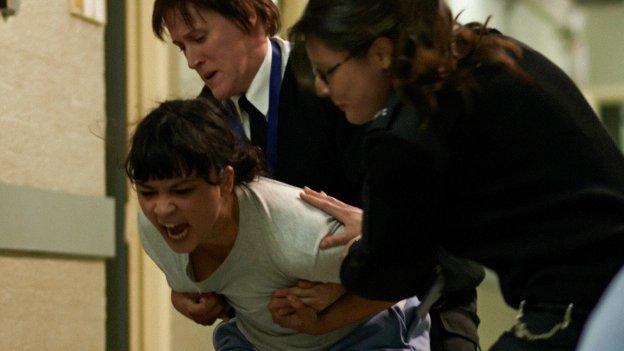The drama school out to break glass ceilings
- Published

L to R: John Boyega, Letitia Wright and Malachi Kirby
Identity School of Acting started in London in 2003 with just 10 aspiring actors who wanted to make their mark.
Now, 14 years later, what opened as the UK's first black drama school has trained thousands of actors, with Star Wars lead John Boyega its most notable alumnus.
In the past decade, nearly 60 per cent of UK films made didn't feature a single black actor in a lead or named role, according to the British Film Institute, external.
Identity's founder and principal, Femi Oguns, wanted to create a drama school that reflected modern society. "Rather than join a chorus of complaint I decided to do something about it," he says.
He didn't just want to train actors - he wanted to shake the industry up. "We need to challenge the decision-makers and the producers and educate them," he goes on.

Star Wars star Boyega is the drama school's first official patron
Oguns didn't want to waste time on producers in the UK who didn't want to use his actors. So he ventured off to Hollywood, taking Boyega with him.
While there was still buzz around Boyega's first film Attack the Block, Oguns self-funded a trip to Los Angeles.
"Femi pushed me and we chased the dream together," says Boyega. "I had used up all my money for this trip and he had funded me and put all his faith into me.
"We just wanted to tackle the world head on. We didn't want to wait."
The Star Wars actor isn't the drama school's only success story. Rising stars Letitia Wright and Malachi Kirby are hot on his heels.

Wright (right) has a role alongside Lupita Nyong'o in Marvel's Black Panther
Michael Caton-Jones, the man who discovered the young Leonardo DiCaprio, called Wright a real talent when he directed her in 2015's Urban Hymn.
The 23-year-old went on to appear in Channel 4's Humans and has a starring role in Marvel's Black Panther, out next year.
When looking into applying to prestigious drama schools like the Royal Academy of Dramatic Art (Rada) and the London Academy of Music and Dramatic Art (Lamda), Wright found the costs expensive and didn't think it was accessible to her.
John Boyega plays Finn in Star Wars: The Force Awakens (2015)
"You shouldn't have to miss out if you don't have the money." she said.
Wright's first TV role was in Holby City. Looking back at her audition in 2011, she remembered being the only black girl in the room.
She continued: "We went into auditions not looking at the colour of our skin but looking at our talent."
"I felt like I had something to offer - and the role turned from a Caucasian girl into a role for a black girl. Attitudes break chains."

Malachi Kirby was recently seen as Kunta Kinte in Roots
Another breakthrough star is Malachi Kirby, who was highly praised by critics for his portrayal of Kunta Kinte in the recent adaptation of Roots.
He has also been seen in EastEnders, Doctor Who and Black Mirror.
When working as a full-time actor in the UK, Kirby often found himself cast as a gang leader. But he was hungry for more opportunities as playing other characters was important to him.
"There are stories I wanted to tell and they are not defined by what I look like," he says.
"I believe it's important to have equal opportunities as a black actor. My way of fighting for it is through my art, by not accepting that there are roles that aren't for me."
All three of Identity's actors echo a similar message - the importance of breaking glass ceilings.
"I wouldn't be doing it if it wasn't for that," says Boyega. "I'm not here to just act. There's purpose in everything I feel, and a value in making others see themselves in a better way.
"You've got to break glass ceilings to do that, and that's what I'm doing."

Follow us on Facebook, external, on Twitter @BBCNewsEnts, external, or on Instagram at bbcnewsents, external. If you have a story suggestion email entertainment.news@bbc.co.uk, external.
- Published3 June 2016

- Published16 September 2015
